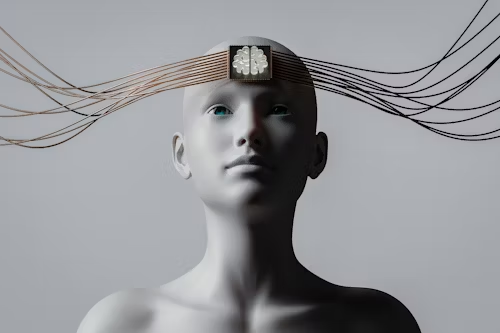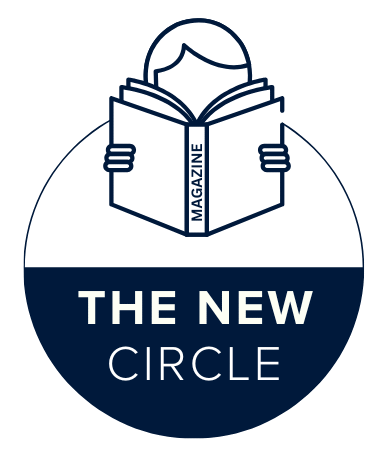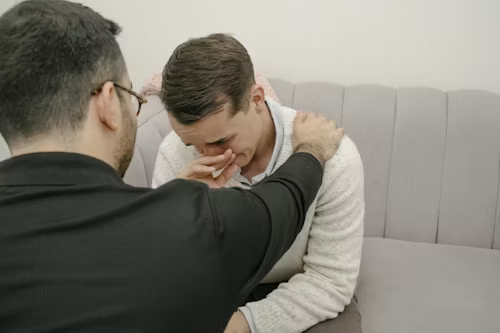You know that feeling? Walking into the “wellness” section of a bookstore or scrolling online feels like stepping into a kaleidoscope of promises. Sound baths. Reiki. Functional nutrition. EMDR. Biohacking. It’s overwhelming, isn’t it? And honestly, sometimes it smells suspiciously like snake oil wrapped in a pretty, lavender-scented package. But buried beneath the hype lies a genuine revolution: wellness therapy services offering real, tangible paths to feeling better – mentally, physically, emotionally. The problem isn’t the potential; it’s knowing how to educate yourself effectively in a landscape flooded with misinformation and fleeting trends. Let’s cut through the noise.
Why This Matters Now (More Than Ever)
Think about it: We spend years learning algebra or historical dates, but how much formal education do we get about managing stress, understanding our gut health, or navigating complex emotions? Almost zilch. Yet, these are the very things that dictate the quality of our daily lives. The demand for holistic well-being solutions is exploding – driven by burnout, chronic health issues, and a simple, universal desire to feel better. But jumping in blind? That’s a recipe for wasted time, money, and disappointment. Educating yourself about wellness therapy services isn’t a luxury; it’s essential self-advocacy. It’s about making empowered choices for your one precious life.
Your Roadmap to Wellness Wisdom
Forget dry textbooks or guru worship. True education here is personal, practical, and ongoing. Here’s how to navigate it like a pro:
1. Define Your Goals & Interests (Get Crystal Clear)
Before diving down rabbit holes, ask yourself the hard questions: What’s actually bothering me? Is it chronic back pain? Debilitating anxiety? Just feeling perpetually “meh”? Or are you exploring out of pure curiosity or professional interest? Be ruthlessly honest. Your goal could be “reduce work stress,” “improve sleep quality,” “manage chronic inflammation,” or “understand holistic health for a career shift.” Clarity here is your compass. Don’t chase what’s trendy; chase what resonates with your unique needs. As my old mentor used to say, “You wouldn’t ask a plumber to fix your wiring.” Know what needs fixing.
2. Research Reliable Sources (Become a Skeptical Sleuth)
This is where most folks stumble. The internet is a Wild West of wellness claims. Your new mantra: “Trust, but verify.” Seek out:
- Peer-Reviewed Journals: PubMed, Google Scholar. Look for systematic reviews or meta-analyses on specific therapies. Does the evidence hold water?
- Reputable Institutions: Mayo Clinic, Cleveland Clinic, Johns Hopkins, National Institutes of Health (NIH) – especially their National Center for Complementary and Integrative Health (NCCIH). They sift through the BS for you.
- Credentialed Professionals’ Websites: Look for licensed therapists (LCSW, LMFT, PhD/PsyD), registered dietitians (RD/RDN), certified exercise physiologists, licensed acupuncturists (LAc), etc. Check their credentials with state boards.
- Critical Science Communicators: Blogs/podcasts by folks like Dr. Jen Gunter, Science-Based Medicine, The Skeptics’ Guide to the Universe. They dissect claims with evidence.
- Red Flags: Anyone promising miracle cures, dissing conventional medicine entirely, or relying solely on anecdotal “testimonials.” Run.
3. Explore the Diverse Landscape of Modalities (Open Your Mind, Critically)
Wellness isn’t one-size-fits-all. It’s a vast ecosystem. Let’s demystify key areas:
- Mindfulness & Meditation: More than just “om.” Evidence-backed for stress reduction, focus, emotional regulation (MBSR, MBCT). Beware of overly commercialized apps promising instant zen.
- Nutrition & Dietetics: Beyond fad diets. Focus on evidence-based approaches for specific conditions (like the DASH diet for hypertension) guided by Registered Dietitians. Functional nutrition can offer insights but needs rigorous practitioner vetting.
- Physical Fitness & Exercise: Crucial, but often misapplied. It’s not just about lifting heavy. Think corrective exercise, physiotherapy, yoga therapy, or tai chi for specific issues like mobility or chronic pain.
- Alternative Therapies (The “Wild West” – Tread Carefully):
- Holistic Health Practices: Naturopathy, Ayurveda, Traditional Chinese Medicine (TCM). These systems have long histories but varying levels of scientific support for specific treatments. Acupuncture for nausea? Strong evidence. For weight loss? Not so much.
- Complementary & Integrative Medicine (CIM): This is where evidence-based alternative therapies work alongside conventional medicine. Think acupuncture for chemo side effects.
- Mind-Body Interventions: Yoga, Tai Chi, Qigong, guided imagery. Strong evidence for stress reduction, balance, and some pain management.
- Traditional & Cultural Practices: Curanderismo, sweat lodges, specific herbal traditions. Respect the cultural context and source knowledge ethically. Efficacy varies widely; research is key.
- Counseling & Emotional Well-being: The bedrock for many. Therapy (CBT, DBT, EMDR, psychodynamic) is heavily researched and effective. Coaching can be useful for goals but isn’t therapy. Crucially, understand the difference.
Cutting Through the Confusion: A Quick Comparison
| Therapy Category | Examples | Potential Benefits (Evidence-Based) | Key Considerations & Cautions |
|---|---|---|---|
| Conventional Therapy | CBT, EMDR, Psychotherapy | Proven for anxiety, depression, PTSD, relationship issues | Requires licensed professional (LCSW, PhD, etc.) |
| Mind-Body | Yoga Therapy, Tai Chi, MBSR | Stress reduction, pain management, improved balance | Quality of instructor matters; not a cure-all |
| Bodywork | Massage, Physical Therapy | Pain relief, mobility improvement, relaxation | Ensure licensed/certified practitioner |
| Energy-Based | Reiki, Healing Touch | Relaxation, potential subjective well-being | Lack strong scientific evidence for physical healing |
| Herbal/Supplemental | Specific herbs, Vitamins | Can address deficiencies (e.g., Vit D), some symptom relief | Interactions! Consult MD/RD; quality varies wildly |
4. Get Hands-On: Workshops, Experts & Self-Reflection

Reading is just step one. To really learn:
- Attend Workshops & Seminars: Look for offerings from universities, hospitals, or respected community centers (not just expensive retreats). A good intro workshop gives you a taste.
- Seek Guidance from Experts: Have a specific question? Book a short consultation with a credentialed professional (RD, therapist, physio). Ask about their approach and the evidence behind it. Listen to your gut – do they seem credible and collaborative, or dogmatic and salesy?
- Practice Self-Reflection & Application: Try a simple mindfulness app (like Insight Timer’s free section) for a week. Journal how it feels. Experiment with a new vegetable. Notice how different foods affect your energy. Apply one small thing and observe the results. Your own experience, critically assessed, is valuable data.
5. Cultivate Critical Thinking: Evaluate & Stay Updated
- Evaluate Evidence & Safety Relentlessly: Ask: “What’s the best evidence for this?” “Are there risks or interactions?” (Especially crucial with supplements or herbs interacting with medications!). NCCIH is a goldmine for safety info. If something sounds too good to be true (permanent cure! effortless weight loss!), it almost certainly is.
- Stay Updated: Wellness research evolves. Subscribe to newsletters from NCCIH or reputable medical institutions. Be prepared to update your understanding as new robust evidence emerges. Remember when everyone demonized all fat? Yeah, science marched on.
Why Bother? The Tangible Payoff of Your Wellness Education
Putting in this effort isn’t just academic. It pays real dividends:
- Enhanced Personal Well-being: Make targeted, effective choices. Stop wasting money on what doesn’t work. Reduce suffering and boost vitality. You become the steward of your health.
- Informed Decision-Making: Navigate conversations with healthcare providers confidently. Understand treatment options and potential side effects. Avoid being pressured into unnecessary or dubious therapies.
- Career Opportunities: The wellness industry is booming, but credibility is key. Deep knowledge opens doors in coaching, wellness programming, integrative health clinics, or content creation (with integrity!).
- Empowerment: This is the big one. Moving from feeling like a passive recipient of health information (or misinformation) to an active, knowledgeable agent in your own well-being journey. It’s transformative.
The Final Word: It’s a Journey, Not a Destination
Look, educating yourself about wellness therapy services isn’t about becoming an overnight expert on every modality under the sun. It’s about developing the skills to navigate this complex, exciting, and sometimes frustrating landscape with discernment and confidence. It’s about asking better questions, demanding evidence, respecting tradition while honoring science, and ultimately, making choices that align with your unique needs and values.
Forget the quick fixes and the Instagram gurus. True wellness is built on a foundation of knowledge, self-awareness, and critical thinking. It’s messy, it’s ongoing, and honestly? It’s some of the most important work you’ll ever do. So, what’s one small step you’ll take today to become a smarter, savvier explorer of your own well-being? Your future self is already thanking you.
YOU MAY ALSO LIKE: Prostavive Colibrim: A Deep Dive into Natural Prostate Support

